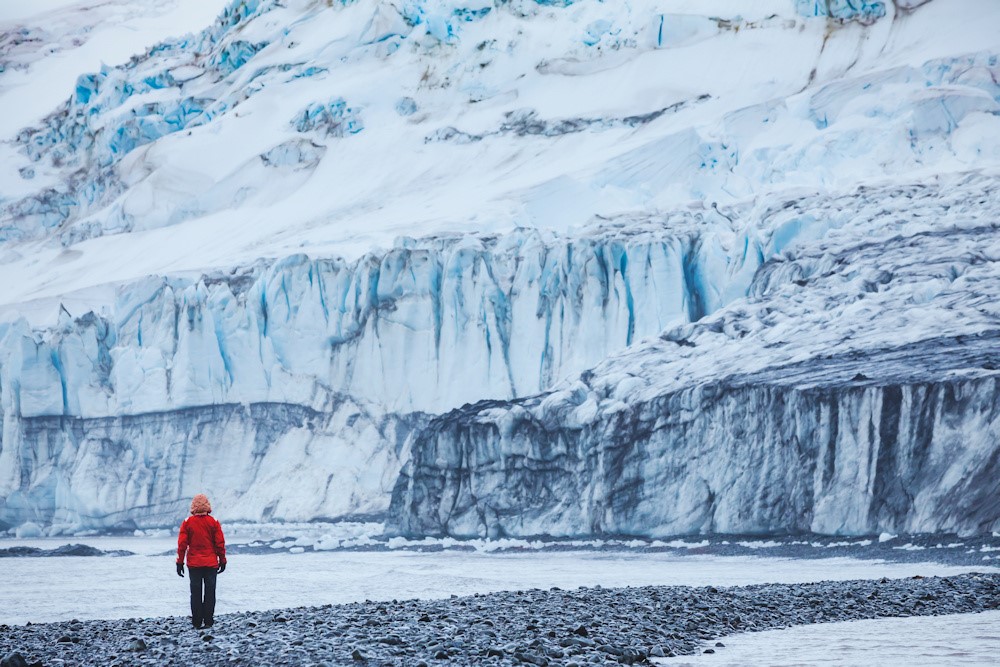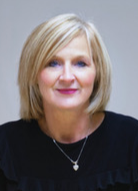Homeward Bound to Antarctica for GAP graduate
By Wendy Pring - Posted on 20 May 2021
GAP graduate Wendy Pring is taking part in Homeward Bound, which helps women influence a healthier planet. Here, Wendy talks about the initiative and how innovation can help solve global problems.
I am part of the Homeward Bound 6 collective, a team of 100 women in STEMM from across the globe selected because of their passion and vision to recognise the importance of adding female leadership to the mix to enable positive change in our planetary management. I am excited, proud and very daunted to be surrounded by the level of passion which has been palpable across all the communications so far on Zoom, Whatsapp and email.
I first read about the Homeward Bound initiative in an Institution of Civil Engineers publication at the end of 2018 and thought it was a revolutionary idea: a leadership programme that tackled how we approach, view and remediate climate change and manage our planetary boundaries. I had completed the Growth Advantage Programme (GAP) earlier that same year and was looking for another layer of leadership - and adventure too if I’m honest. It wasn’t on my bucket list until I read about it but then it most certainly was!
Having a background in STEMM and covering academia, public sector and industry, I believe it’s the perfect place to truly appreciate perspective and start to apply strong research and entrepreneurial drive to create pathways to support 21st Century living within - or certainly not adding any more challenges to - the natural ecosystem that supports our living. I hope to be able to understand and then live accordingly, and also share the solutions more widely to amplify the damage we do to our ecosystem but also to broadcast the benefits of supporting our ecosystem.
I think it’s critical for all generations to witness the different ways in which women can bring ideas and solutions as we look to move our approach towards wellbeing of both people and planet. I want to see women leading, encouraging, enabling and providing opportunities for all - not just our children - to understand how ecosystems survive.
While this group is made up solely of women, what I have been struck with so far is not that we are all women as such but the diversity of culture and the subsequent thinking that is then different across the group of people. That’s what has been insightful for me so far on the leadership training we have had.
This year, we are looking to generate two things: practically we want to see how many times we can travel to Antarctica – that's a distance of 16,000km. We also want to raise awareness and host discussions and podcasts across our various disciplines to share knowledge. I fear I may be bringing up the rear in all the kms to be travelled, but I will be cycling, walking and wild swimming (I’m terrified of water & boats so I’m dealing with my fear through Homeward Bound’s leadership training) with my 10-year-old on hand for encouragement! My daughter and I will also be working with the new litter app to start to capture data, which is mapped by space, time, location and behaviour. She is planning to set us up a TikTok account to manage our online presence because apparently I'm too old and not cool enough!
Hopefully we get to Antarctica in 2022 but obviously that depends on the global Covid situation at the time – we'll find out more in the coming months about that.
As an engineer, my interests lie in water and waste flows. I’m also keen on investigating circular business models and the circular economy and how these can be created to be both suitable for business and moving towards a greater awareness and - more importantly - action and implementation of positive climate changes. With the current pandemic, many habits have been broken and new ones made and many. many companies have pivoted as their long supply chains and lack of visibility of scope 3 emissions has been under a spotlight. New paradigms require bold conversations as the decisions and choices are bold.
I have completed two modules in the Hunter Centre for Entrepreneurship this semester on Innovation. Across the ‘managing innovation’ programme the different topics of how innovation is managed was theoretically explained - what I like is the practical application of this. Theory can provide a road map, strategic tools to manage our thoughts and activities to distil entrepreneurial thinking. In real life these are interconnected; they change and move and can be finely balanced and tuned. How we recognise and support this in individuals’ learnings is crucial. This is where we start to create sustainable agile solutions which recognise that change and innovation is very much part of the tapestry we now live in.
Over-population and over-consumption have created the perfect storm - to understand how this impacts us is, I believe, down to innovation in how we learn, how we recognise and balance personal development. Believing and supporting change, reinventing approaches, and supporting people and planet in a way that allows us to live relatively wonderful lives requires huge swathes of entrepreneurial thinking – innovative thinking will hopefully solve the environmental problems we have created for our world.










